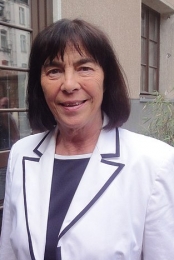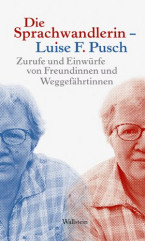Biographies Ingrid Matthäus-Maier

born on September 9, 1945, in Werlte, Aschendorf district, Germany
German judge, politician, and banker
80th birthday on September 9, 2025
Biography
“I was in the Bundestag for 22 years and in active politics for 30 years. That's enough.” Interviewers who asked Ingrid Matthäus-Maier after 1999 about a possible return to political office always received the same answer: No, she did not regret trading her seat in the Bundestag and her position as deputy chair of the SPD parliamentary group for a position on the board of the Kreditanstalt für Wiederaufbau (KfW). On the contrary: At the state-owned bank, she could implement many of the funding programs she had helped to develop as a politician. And no, she added, she had not taken the position out of disappointment that someone else had been appointed finance minister of the new red-green government in the fall of 1998.
The fact that Ingrid Matthäus-Maier was not appointed to Schröder's cabinet had come as a surprise to many. Energetic and rarely at a loss for words—in a heated exchange with CSU Finance Minister Theo Waigel, she once defined the unit of measurement “Theo” as “the distance between two budget deficits”—the gifted and award-winning speaker had made a name for herself as a prominent figure in politics and as a financial expert.
Ingrid Matthäus-Maier began her political career with the Liberals. Active in university politics while still a law student in Giessen and Münster, she joined the FDP in 1969 and was elected chairwoman of its youth organization for one year in 1972. In 1976, she gave up her position as an administrative judge in Münster to become the youngest member of the Bundestag, where she was appointed chair of the Finance Committee in 1979. The turning point came in the fall of 1982 when the FDP left the social-liberal governing coalition: Ingrid Matthäus-Maier resigned from all her offices in protest and turned her back on the party. She joined the SPD in December 1982 and was re-elected to the Bundestag in 1983. In the SPD, she soon built on her previous successes and consistently advocated for a fiscal policy founded on the principles of socially just, forward-looking, and ecologically sustainable economic growth.
Her move to the KfW in July 1999 once again made Ingrid Matthäus-Maier an exception; there were hardly any women in the boardrooms of large companies. “It was like being transported back 30 years,” she later said, describing the difference to politics. She herself had long since succeeded in realizing her vision of emancipation, including in her private life: after the birth of her second child in 1980, it was her husband, the mathematician Robert Maier, who was responsible for managing the household.
(Text from 2004; translated with DeepL.com; edited by Ramona Fararo, 2025.
Please consult the German version for additional information, pictures, sources, videos, and bibliography.)
Author: Annette Lutz
If you hold the rights to one or more of the images on this page and object to its/their appearance here, please contact Fembio.



